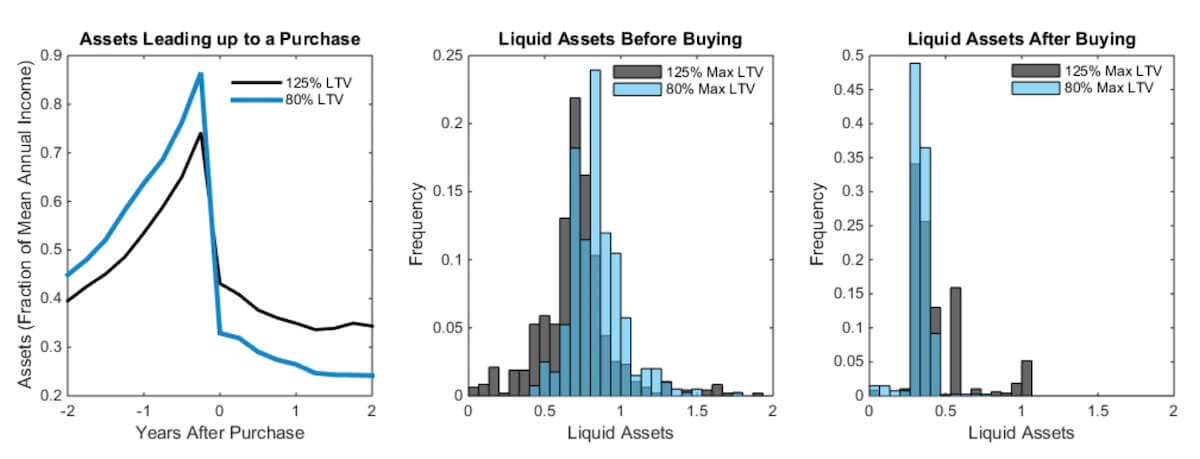Should We See The Epstein Files? Examining AG Pam Bondi's Decision

Table of Contents
The death of Jeffrey Epstein left a trail of unanswered questions and a firestorm of controversy. The public's insatiable appetite for information surrounding his crimes and alleged accomplices has intensified the debate: Should we see the Epstein files? Attorney General Pam Bondi's role in this complex saga adds another layer to this critical question, demanding a thorough examination of the ethical, legal, and public interest implications. This article delves into the arguments surrounding the release of these potentially explosive documents, focusing particularly on AG Bondi's decisions and their ramifications.
<h2>The Legal Arguments Surrounding the Release of the Epstein Files</h2>
The legal arguments surrounding the release of the Epstein files are multifaceted and complex, involving a delicate balance between transparency and individual privacy rights. AG Pam Bondi's involvement adds a layer of intricacy, raising crucial questions about potential conflicts of interest and the appropriate application of relevant laws.
<h3>Bondi's Role and Potential Conflicts of Interest</h3>
Pam Bondi's acceptance of a $25,000 donation from Jeffrey Epstein's foundation shortly before her office declined to investigate Epstein in 2013 has fueled significant criticism and accusations of a conflict of interest.
- Specific instances: News reports detail the timing of the donation and the subsequent decision not to pursue an investigation. [Link to relevant news article 1] [Link to relevant news article 2]
- Legal precedents: Relevant legal precedents concerning conflicts of interest for public officials and the handling of sensitive information need to be considered. The potential for bias in decision-making due to financial contributions requires careful scrutiny.
- Statutes: State and federal statutes concerning the release of investigative documents and the protection of privacy must be examined to understand the framework within which AG Bondi operated.
<h3>Privacy Concerns vs. Public Interest</h3>
The central question revolves around the delicate balance between protecting individual privacy rights and serving the public interest. Releasing the Epstein files could potentially expose sensitive information about individuals, damaging their reputations and causing significant harm.
- Potential consequences of release: Reputational damage to individuals mentioned in the files; invasion of privacy for those not directly involved in Epstein's crimes; potential for the files to be misused for malicious purposes.
- Potential benefits of release: Uncovering further evidence of crimes and conspiracies; promoting greater transparency and accountability in governmental investigations; potentially leading to further prosecutions.
- Legal scholarship: Legal scholars debate the extent to which the public's right to know overrides individual privacy rights, especially in cases involving alleged powerful individuals and systemic corruption.
<h2>Ethical Considerations in the Epstein Files Debate</h2>
Beyond the legal arguments, the ethical dimensions of the Epstein files debate are profound. Transparency, accountability, and the well-being of victims must be central considerations in any decision regarding their release.
<h3>Transparency and Accountability</h3>
Transparency in governmental investigations, particularly those concerning powerful figures, is paramount for maintaining public trust. Withholding information, especially in cases of significant public interest, can foster cynicism and undermine faith in institutions.
- Implications of withholding information: Erosion of public trust; fueling conspiracy theories; hindering the pursuit of justice.
- Role of investigative journalism: The press plays a vital role in uncovering wrongdoing and holding powerful individuals accountable. Access to relevant documents is crucial for this function.
<h3>The Impact on Victims</h3>
The potential impact on Epstein's victims is a significant ethical concern. Releasing the files could lead to retraumatization and further distress for those who have already suffered immensely.
- Potential for retraumatization: Exposure to details of their abuse; reliving traumatic experiences; renewed media scrutiny.
- Protecting victim privacy: Balancing the public's right to know with the need to protect victims’ identities and privacy is crucial. Redaction and careful consideration of the potential impact on victims are vital.
<h2>Public Opinion and the Demand for Transparency</h2>
The intense public interest in the Epstein case reflects a widespread desire for transparency and accountability. The media's role in shaping this narrative is also significant.
<h3>Analyzing Public Sentiment</h3>
Public opinion strongly favors transparency in the Epstein case. Numerous polls and surveys indicate a significant segment of the population believes the public deserves access to the Epstein files. Social media has played a significant role in amplifying this demand.
- Public opinion polls: [Link to relevant poll data]
- Social media impact: Social media platforms have become central forums for discussions and debates surrounding the Epstein case and the demand for transparency.
<h3>The Role of Media in Shaping the Narrative</h3>
The media's coverage of the Epstein case has been instrumental in shaping public perception. Responsible reporting is critical in balancing the public's right to know with the need to protect the privacy of victims and avoid sensationalism.
- Challenges of responsible reporting: Protecting the identity of victims; avoiding the spread of misinformation; ensuring accurate and fair reporting.
<h2>Conclusion: Should We See the Epstein Files? A Final Verdict</h2>
The question of whether we should see the Epstein files remains complex and fraught with ethical and legal considerations. Weighing the public's right to know against the potential harms to individuals and the need to protect victims necessitates a careful balancing act. While transparency is vital for maintaining public trust and accountability, the potential for retraumatization and reputational damage cannot be ignored. AG Bondi's decisions, especially concerning the handling of conflicts of interest, warrant further scrutiny. Ultimately, a nuanced approach that prioritizes both transparency and the well-being of victims is necessary.
Let's discuss the implications of the decision regarding the Epstein files. Continue the conversation about access to the Epstein files and the need for responsible handling of sensitive information in matters of public interest. [Link to relevant resources/organizations]

Featured Posts
-
 Trumps Houthi Truce Shippers Remain Doubtful
May 09, 2025
Trumps Houthi Truce Shippers Remain Doubtful
May 09, 2025 -
 Disneys Upgraded Profit Outlook A Reflection Of Parks And Streaming Strength
May 09, 2025
Disneys Upgraded Profit Outlook A Reflection Of Parks And Streaming Strength
May 09, 2025 -
 The Feds Rationale Why Rate Cuts Remain Unlikely
May 09, 2025
The Feds Rationale Why Rate Cuts Remain Unlikely
May 09, 2025 -
 Posthaste High Down Payments And The Canadian Dream Of Homeownership
May 09, 2025
Posthaste High Down Payments And The Canadian Dream Of Homeownership
May 09, 2025 -
 Elizabeth City Police Investigate String Of Car Break Ins At Apartment Complexes
May 09, 2025
Elizabeth City Police Investigate String Of Car Break Ins At Apartment Complexes
May 09, 2025
Latest Posts
-
 Exclusive Nottingham Attack Survivors Emotional Account Of The Tragedy
May 09, 2025
Exclusive Nottingham Attack Survivors Emotional Account Of The Tragedy
May 09, 2025 -
 Nottingham Attack Survivor Speaks Out I Wish He D Taken Me Instead
May 09, 2025
Nottingham Attack Survivor Speaks Out I Wish He D Taken Me Instead
May 09, 2025 -
 Character Development In Wynne And Joanna All At Sea
May 09, 2025
Character Development In Wynne And Joanna All At Sea
May 09, 2025 -
 Sex Slur Scandal Wynne Evans Removed From Go Compare Advertisements
May 09, 2025
Sex Slur Scandal Wynne Evans Removed From Go Compare Advertisements
May 09, 2025 -
 Wynne And Joanna All At Sea A Deep Dive Into The Narrative
May 09, 2025
Wynne And Joanna All At Sea A Deep Dive Into The Narrative
May 09, 2025
